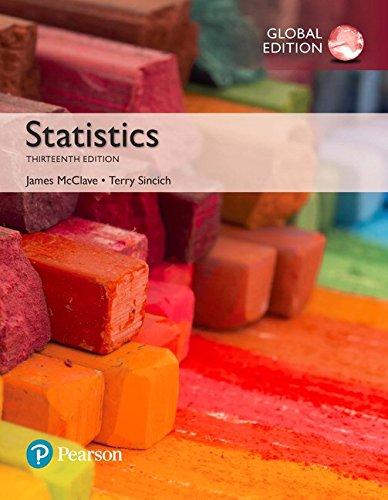Personality traits and job performance. When attempting to predict job performance using personality traits, researchers typically assume
Question:
Personality traits and job performance. When attempting to predict job performance using personality traits, researchers typically assume that the relationship is linear. A study published in the Journal of Applied Psychology (Jan. 2011)
investigated a curvilinear relationship between job task performance and a specific personality trait: conscientiousness.
Using data collected for 602 employees of a large public organization, task performance was measured on a 30-point scale
(where higher scores indicate better performance) and conscientiousness was measured on a scale of -3 to +3 (where higher scores indicate a higher level of conscientiousness).
a. The coefficient of correlation relating task performance score to conscientiousness score was reported as r = .18. Explain why the researchers should not use this statistic to investigate the curvilinear relationship between task performance and conscientiousness.
b. Give the equation of a curvilinear (quadratic) model relating task performance score (y) to conscientiousness score (x).
c. The researchers theorize that task performance will increase as level of conscientiousness increases but at a decreasing rate. Draw a sketch of this relationship.
d. If the theory in part c is supported, what is the expected sign of b2 in the model, part b?
e. The researchers reported b n 2 = -.32 with an associated p-value of less than .05. Use this information to test the researchers’ theory at a = .05.
Step by Step Answer:





